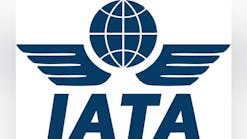airBaltic Launches the Construction of the Baltic Cargo Hub
A state-of-the-art facility is set to become the largest dedicated air cargo handling center in the Baltics. Latvian national airline airBaltic is partnering with UPB Nams, SIA for the construction of the Baltic Cargo Hub at RIX Riga Airport. The facility will feature direct access to the apron, making cargo import, export, and transit processes quick and easy.
“The Baltic Cargo Hub marks an important milestone for Latvia's aviation sector, strengthening our position on the regional airfreight and logistics map. This state-of-the-art facility not only exemplifies our commitment to enhancing Latvia's logistics capabilities but also reinforces our strategic vision of leveraging aviation as a catalyst for economic growth and international trade. Through initiatives like these, we are not just expanding our infrastructure but are also building bridges that connect Latvian businesses to the world, fostering innovation, and improving our nation’s competitiveness," said Kaspars Briškens, minister of transport of the Republic of Latvia.
“In 2023, airBaltic delivered over 9 400 tonnes of cargo and mail, maintaining its status as the largest air cargo and mail carrier at RIX Riga Airport to date. However, our existing cargo hangar, fundamental for our operations, will soon be replaced by the Rail Baltica railway track. The upcoming Baltic Cargo Hub will significantly increase our handling capacity at Riga hub, allowing to handle up to 45 000 tonnes of cargo annually. This development will not only boost the airport's cargo volume, but also bring substantial benefits for airBaltic. Overall, this project represents a significant milestone for our airline and Latvia's aviation sector, setting a new standard in air cargo handling and logistics in the region," said Martin Gauss, president and CEO of airBaltic.
"Our national airline, airBaltic, is currently the largest aviation cargo and mail carrier at Riga Airport. We are confident that the new cargo handling center will optimize and enhance cargo service processes, providing additional benefits to both the airline and its customers," said Laila Odiņa, chairperson of the Board of RIX Riga Airport.
Currently, the volume of air cargo transportation in Latvia consists of four main areas of activity – the export and import of high-value goods, the transportation of mail and e-commerce items, transit air cargo services, and the transit of non-military goods. Globally, air cargo accounts for 1% of trade volume, but represents 35% of its value, demonstrating that nations with developed air cargo networks benefit significantly from an economic standpoint.
The new Baltic Cargo Hub will be equipped with cutting-edge, semi-automatic cargo handling equipment – Material Handling System (MHS), including a mail sorter. These advancements will significantly improve handling efficiency for both belly cargo and dedicated cargo freighter aircraft.
Baltic Cargo Hub is designed to have full special cargo handling capabilities with dedicated temperature-controlled rooms for pharmaceuticals and perishables, premises for dangerous goods, live animals and valuable shipments.
Furthermore, the hub's design integrates essential functionalities for the Food and Veterinary Service and a Customs checkpoint.
The development of the project utilized Building Information Modeling (BIM), a technology that will continue to be employed throughout the construction phase.
Spanning an area of 6 895 m², the hub will dedicate approximately 5 000 m² to cargo handling facilities and around 2 000 m² for office spaces. The project advocates for a sustainably built environment, as verified by BREEAM certification.
The key collaborators in the project include:
- Contractor: UPB Nams, SIA
- General Designer: OZOLA & BULA, Architect Office, SIA
- Construction Supervisor: Būvuzraugi LV, SIA
- BIM Consultant: ITED, SIA
- BREEAM Assessor: VESTA CONSULTING UAB, Lithuania
- Technology Consultant: BeCon Projects GmbH
- Technology Supplier: Lödige Systems GmbH
The planned project implementation period is 12 months.




